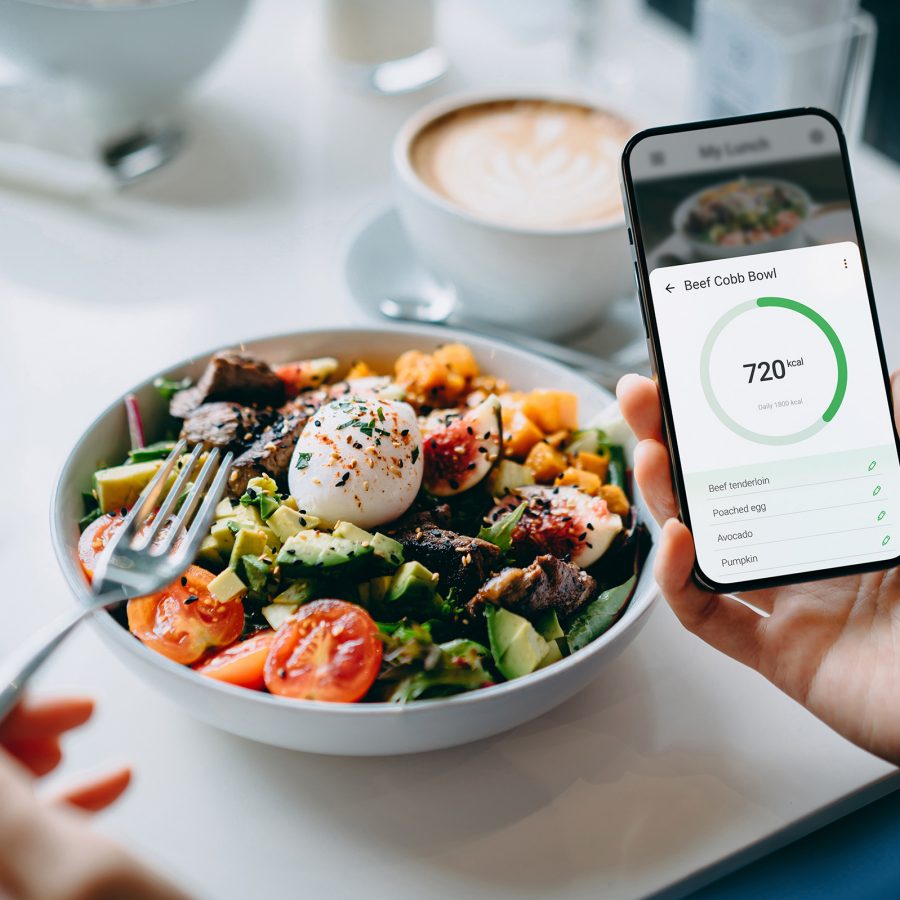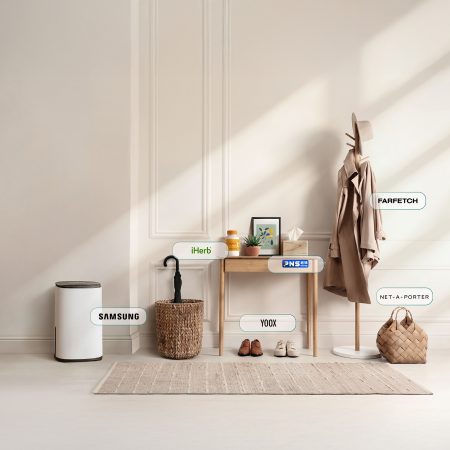7 easy ways to lead a healthier lifestyle
When it comes to making healthy lifestyle choices, there are many ways in which we can all do a little better – whether it be nutritionally, emotionally or physically.
Thankfully, even a few simple changes to your lifestyle can lead to a noticeable improvement on your day-to-day wellbeing. Here, we share the best steps to take towards a happy, healthy lifestyle.

Credit: Chinnapong/Getty Images
1. Get enough (quality) sleep
Why sleep is important
Sleep deprivation impacts your body far more than you realise: it can affect concentration and stress levels, increase blood pressure, weaken your immune system and lead to overeating (normally fast food). However, getting a good night’s sleep is about more than the length of time spent asleep – the quality matters, too. Creating a healthy sleeping routine is key to unlocking the power of sleep.
How to improve your sleep
Make sure you plan for at least seven hours of sleep a night – though the exact amount may change as you age and that’s perfectly normal – and wake up at the same time every day. This will train your brain to recognise on its own when it’s time to wake up. Switching off your television and putting down your phone 30 minutes or so before bedtime can help you drift off to sleep, as will reducing your caffeine and alcohol intake. You should avoid alcohol four hours before bed, and caffeine for five, as their effects may disrupt your natural sleep cycle.
Stay accountable with the Asia Miles by Cathay app, which allows you earn miles and rewards just by logging your sleep.

Credit: AsiaVisio/Getty Images
2. Drink more water
Why hydration is important
Water is essential for our bodies to work properly, but most of us don’t drink enough of it every day. Not only is it critical for digestion, removing waste and carrying nutrients and oxygen around our body, but it is also good for your mind and complexion – even mild dehydration can impact concentration, alertness and cause fatigue and headaches.
How to stay hydrated
The recommended daily intake of water can vary significantly according to how much you sweat during the day – whether due to hot weather, exercise or illness. Most health guidelines suggest you should be drinking around six to eight glasses of fluid a day. With the Asia Miles by Cathay app, you’ll earn miles just by hitting that goal. Learn more about how to stay hydrated with the Asia Miles by Cathay app along with other tips and tricks.
3. Exercise regularly
Why exercise is important
The health benefits of regular exercise are hard to ignore. It can help with weight control, manage health problems, prevent diseases (such as arthritis, high blood pressure, depression and diabetes), improve your mood, boost your overall energy and promote better sleep. Different forms of exercise can help with specific fitness goals, but a well-rounded regime should include both aerobic exercise and strength training.
How to stay active
Any amount of physical activity is beneficial, but a healthy lifestyle should include at least 150 minutes of moderate-intensity cardio (walking, biking, swimming, etc.) or 75 minutes of vigorous aerobic exercise, such as running, per week. You should also aim to include all major muscle groups with strength training at least twice a week, whether you use weights, resistance bands or your own body weight. If you have a smart tracker, you can link your activities – from steps to exercise – to daily goals in the Asia Miles by Cathay app to earn miles and rewards just for looking after your health.
Video Credit: commandoXphoto/Getty Images

Credit: d3sign/Getty Images
4. Eat well
Why your diet is important
Healthy eating is key to maintaining good health and helping you feel your best. The right diet can lower the risk of obesity, heart disease, stroke, diabetes and help with sleeping patterns and energy levels. Generally speaking, men need at least 2,000 calories a day while women require at least 1,600. The exact number varies according to several factors including how active your lifestyle is. After all, eating healthily is not just about eating the right foods, but eating them in the right proportions, too.
How to eat healthy
Your diet should include five portions a day – or half your plate for every meal – of fruits and vegetables (which are packed with antioxidants, vitamins, minerals and fibre), whole grain foods (which help you stay healthy and fuller for longer) and protein (which helps build and maintain muscle, bones and skin). As a bonus, you’ll earn Asia Miles when you log your fruit and vegetable intake in the Asia Miles by Cathay app. It’s also important to limit your intake of highly processed foods, sugar, salt and saturated fats.

Credit: FreshSplash/Getty Images
5. Meditate
Why meditation is important
A healthy lifestyle involves more than your physical wellbeing, it’s also about looking after your mental health. One of the best ways to improve your mental wellbeing is through meditation – the benefits of which include better focus and concentration, improved self-awareness and self-esteem, and lower anxiety and stress levels.
How to meditate
Meditating for even just a few minutes daily can help bring a sense of calm and balance into your life. In mindfulness meditation, you learn how to pay attention to your breath, noticing when your mind wanders and bringing your attention back to your breathing when it does. This practice of returning to the breath builds the muscles of attention and teaches us to be present in the moment. There are plenty of guided meditation resources available, from meditation apps to YouTube videos, to get you started.

Credit: d3sign/Getty Images
6. Read more
Why reading is important
People often forget the most important muscle to work out: the brain. Aside from the obvious benefits of reading, such as vocabulary expansion and knowledge enhancement, reading is a great way to improve your focus, memory, empathy and communication skills, as well as decrease stress and improve your mental health. It can also help develop analytical thinking skills and be a great source of entertainment away from a screen.
How to read more
Whether you’re reading for two hours each day or two hours over an entire week, the key is to fit some form of reading into your schedule. Try setting some time aside in the morning or evenings – before bed is a great option, to help you wind down before you sleep, as is during a daily commute.
7. Go outside
Why spending time outdoors is important
Communing with nature has been associated with improved physical and mental health, with benefits such as better sleep (being outdoors helps regulate your circadian rhythm), lower blood pressure and even boosting your mood. Being outdoors in the daytime also helps your body produce vitamin D, which is vital for bone and blood health as well as your immune system.
How to go outside more
Even if you don’t see yourself as an outdoor person, you can still incorporate a short excursion or detour to your local park, garden or green space into your daily schedule. This allows you to reap the benefits of being present around nature, which also comes with the added benefit of walking and practicing mindfulness. Before you head out, though, make sure you have sun protection and monitor weather conditions and the air quality.
Video credit: Yamato1987/Getty Images
This story was originally published in July 2022 and updated in March 2025.
More inspiration
- China – the Chinese Mainland, Hong Kong SAR, Macao SAR and Taiwan Region
- Hong Kong SAR - English
- Chinese Mainland (China) - English
- Taiwan, China - English
- 香港特別行政區 - 繁體中文
- 中国內地 - 简体中文
- 中國台灣 - 繁體中文
- Africa
- South Africa - English
- Asia
- Bangladesh - English
- Korea - English
- Singapore - English
- Cambodia - English
- 한국 - 한국어
- Sri Lanka - English
- India - English
- Malaysia - English
- Thailand - English
- Indonesia - English
- Maldives - English
- ประเทศไทย - ภาษาไทย
- Indonesia - Bahasa Indonesia
- Myanmar - English
- Vietnam - English
- Japan - English
- Nepal - English
- Việt Nam - tiếng Việt
- 日本 - 日本語
- Philippines - English
- Australasia
- Australia - English
- New Zealand - English







